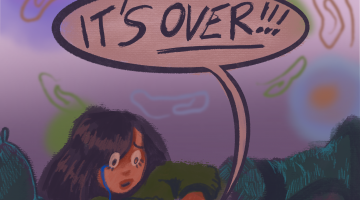
Ronan Farrow talks to media. His new book details problems in the media regarding sexual misconduct.
“You know, the press is as much a part of our democracy as Congress or the executive branch or the judicial branch. It has to keep things in check. And when the powerful control the press, or make the press useless, if the people can’t trust the press, the people lose. And the powerful can do what they want.”- Ronan Farrow Catch and Kill: Lies, Spies, and a Conspiracy to Protect Predators.
Last week I read Ronan Farrow’s book “Catch and Kill: Lies, Spies, and a Conspiracy to Protect Predators” where he outlines his unfathomable experience to uncover and reveal the truth behind the allegations against Harvey Weinstein. Farrow explains how the NBC news executives Noah Oppenheim, Andy Lack and Phil Griffin actively downplayed the importance of Farrow’s evidence, which implicated Weinstein in sexual misconduct. He also, in what reads like a fiction book, explains the measures taken to keep him silent and kill the story. Farrow also brought forward rape allegations made by Brooke Nevils against NBC’s own Matt Lauer, which was actively disputed and belittled by the NBC officials.
As the pages turned, I slowly realized that I was reading a book about a broken industry. An industry that would much rather protect predators than protect the women who put their lives and careers on the line to tell their story.
I’m about to join the journalism field and the reality of the industry is disillusioning. When I graduate, will I have to continually worry about whether or not my bosses will protect me? How much harder will I have to work to prove myself? What kind of future is that?
The accusations outlined in Farrow’s book go beyond NBC and show how the industry we trust to tell our news actively takes for granted their power. People trust the news and they trust that the people behind the news are acting morally and respectfully. When it’s all a facade, people feel betrayed, and this is the issue media is facing now. I feel betrayed, and so should the women who are actively aspiring to be in the industry. The industry is protecting predators instead of setting a higher standard. The media industry should be setting the standards for workplace behavior, not lowering the standards.
Why did the media industry silence women’s voices before the #MeToo movement? What’s in it for them? In 2018, the Center for Talent Innovation reported that in the media, 41 percent of women and 21 percent of men experience sexual harassment by their colleagues. The report is not surprising given that 57 powerful men and women in media out of 263 influential members of entertainment, media and politics have been accused of misconduct since 2017, according to Vox.
As I sit in class listening to lectures about media ethics and proper etiquette in the newsroom, I can’t help but see the hypocrisy of it all. In my career to get a bachelor’s degree, there have been many instances where I am constantly reminded that I will not be treated equally in the media industry. One only needs to watch the news to see that, and Farrow’s book confirms it.
When the media is no longer objective on topics as sensitive as sexual abuse, then we run the risk of continuing the cycle of abuse instead of creating change. By exposing what happens behind closed doors, there is an opportunity to shift the narrative. The industry has the potential to set great standards for future men and women who aspire to inform the public.
I know that we can do better.
Madison Vialpando can be reached at madisonvialpando@nevada.unr.edu or on Twitter @madisonvialpan2










